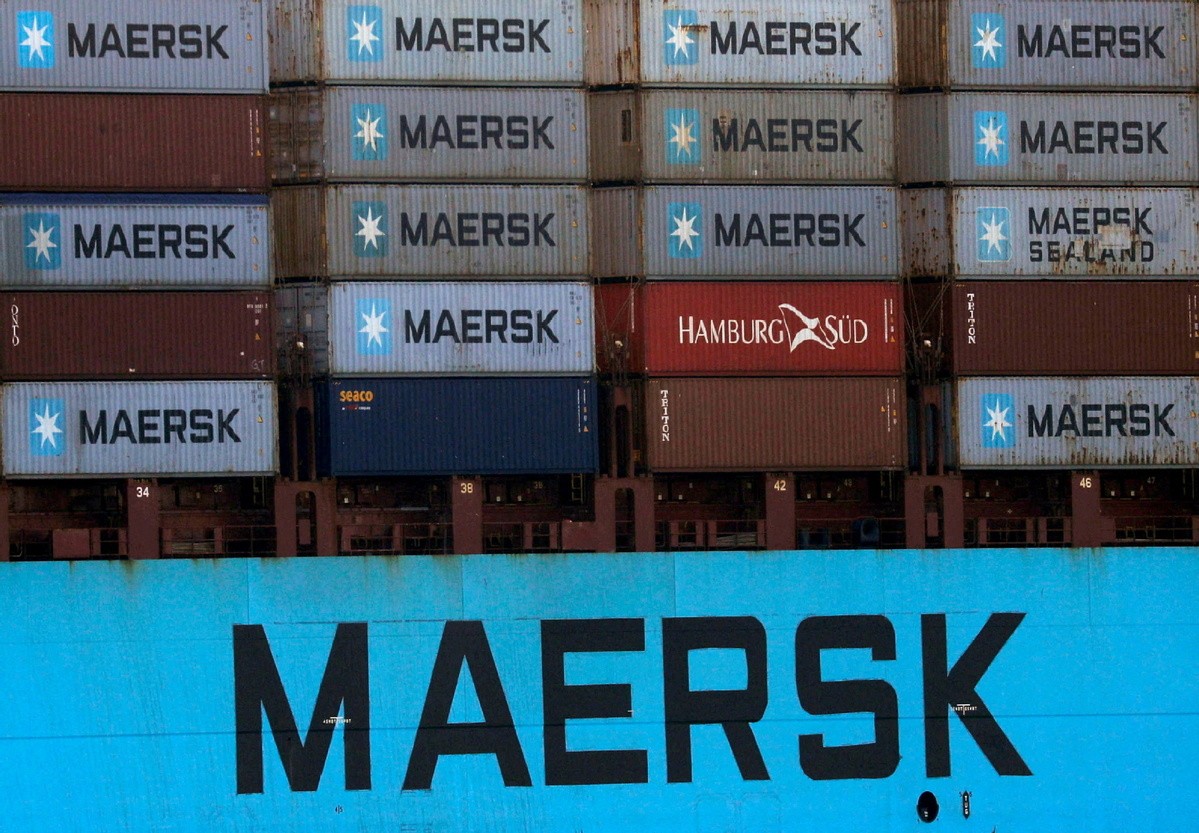Uncertainties disrupt regional ocean shipping【Ocean shipping, Logistics disruptions, Foreign trade, Cargo transportation】
2022.03.04 SOURCE:Xinhua

Shipping containers are transported on a Maersk Line vessel through the Suez Canal in Ismailia, Egypt, July 7, 2021. [Photo/Agencies]
Uncertainties arising from Russia-Ukraine tensions have been disrupting regional ocean shipping, adversely impacting global supplies of oil, natural gas and grains, pushing up commodity prices and straining the already fragile global supply chain suffering from COVID-19 impacts, experts and business leaders said on Thursday.
Some foreign trade enterprises in China are also exposed to greater risk of logistics disturbances, although the overall impact on China's foreign trade is limited, they said.
Their comments were in response to the impact of escalation of tensions on global supply chains, and the attendant delays, cargo detentions and unpredictable operations.
Zheng Lei, vice-president of the Hong Kong International New Economic Research Institute, said some international cargo transportation had to switch to ocean shipping and road freight from air channels. The switch followed aviation-related sanctions and flight restrictions. Consequently, the global supply chain, which is already under huge pressure due to clogged ports and high-level ocean shipping rates, will likely become even more strained.
Maersk, one of the world's largest shipping lines, announced in a statement on Wednesday that it will halt accepting all new reefer bookings (chilled and frozen) to and from St. Petersburg and Kaliningrad in Russia, due to significant delays in European hubs for Russia-bound cargo. The gateways in Novorossiysk and the Russian Far East remain open now though.
The company started suspending new bookings to and from Russia on March 1, except for foodstuffs, medical and humanitarian supplies.
"The conflict already has had a direct negative impact on ports in the region, with terminal handling and cargo logistics suspended," said Zhou Shihao, CEO of YQNLink, a global intelligent logistics platform based in Shanghai.
"If the tensions escalate, direct freight train services via the China-Europe Railway Express will be also influenced, causing a wider-range of logistics suspensions and cargo damage," Zhou said.
According to Zhang Yi, head of hifleet.com, a well-known shipping data website, the suspension of logistics services in the region by multiple shipping providers has significantly disrupted tanker and bulk commodity shipments, leading to a surge in prices of global oil, natural gas, and grain.
Zhou, with YQNLink, warned rises in commodity prices will push up the already elevated levels of inflation, and dampen consumption demand for goods other than daily necessities in some developed countries.
However, both analysts stressed the conflict will have a limited impact on most foreign trade enterprises in China, despite a small number of enterprises that trade directly with Ukraine, Russia and Belarus are likely to face stiffer challenges like logistics disruptions.


